Next stop, social innovation!
How will these young people change the world? The UK’s first Drivers for Change journey took place in June, taking 100 entrepreneurial and creative young people around the UK to visit innovative projects and hear from inspiring speakers. We caught up with them at their final stop, the House of Lords, where they reflected on their experiences.
The concept of Drivers for Change, which took place for the first time last week, is simple: 100 entrepreneurial and creative 18-25 year olds spend 11 days travelling on buses together to visit social enterprises situated across eight UK cities including Bradford, Bristol, Edinburgh and Liverpool.
The trip was inspired by Jagriti Yatra, a train journey which takes place every year across India, carrying hundreds of young people to dozens of destinations designed to fire up their minds with great ideas to help strengthen their country.
The UK journey hopes to enable participants to build connections with like-minded young people from across the globe, as well as being inspired by the potential of creative and social enterprises to influence social change. Throughout the week they met social entrepreneurs from across the country, as well as hearing talks from social impact influencers including Michael Sheen and Sam Conniff-Allende (who we interview in the forthcoming issue of Pioneers Post Quarterly - out soon).
As well as participants from across the UK, the British Council enabled 20 young people from five emerging economies to take part (Pakistan, Indonesia, Egypt, Brazil and South Africa).
Pioneers Post joined the Drivers for Change bus passengers on their final stop: the House of Lords, where they were to present ideas they had developed over the past 11 days, as well as speak about what the experience had meant to them.
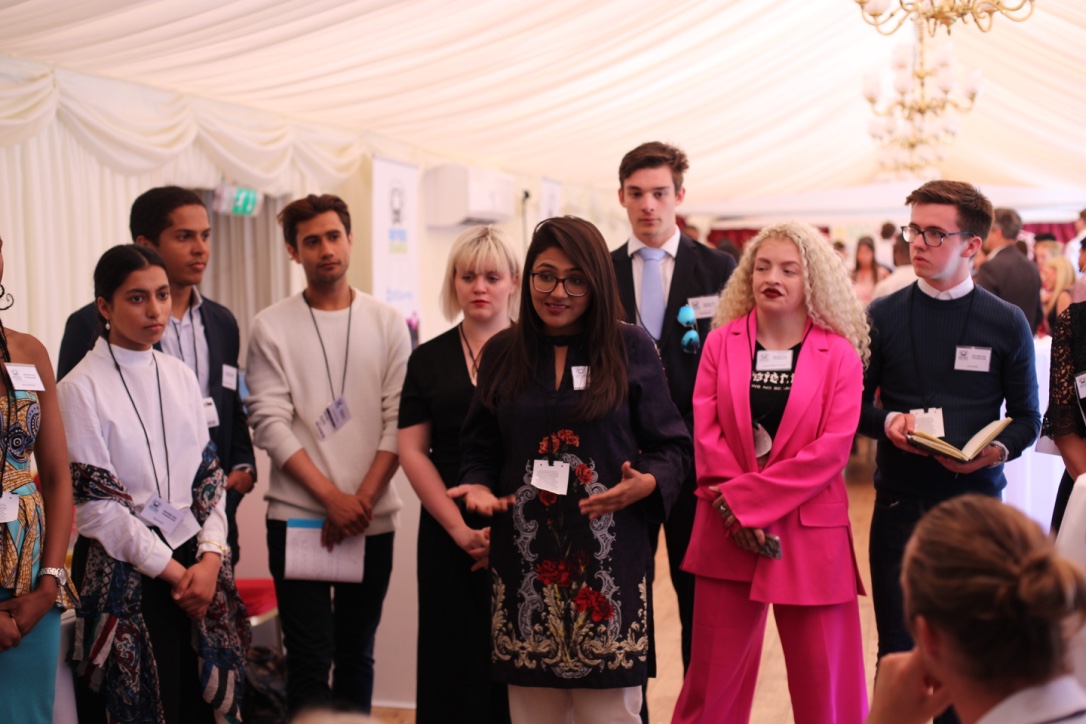
The celebration began with an introduction by Baroness Glenys Thornton, who said she hoped the young people had “learnt that you shouldn’t have to ask for permission to innovate”, followed by words from the British Council’s director of social and creative economies Dr Mairi Mackay, and David Adair, head of community affairs at PricewaterhouseCoopers, both sponsors of the journey.
Richard Collier-Keywood and Jude Kelly, the Drivers for Change founders, also offered some words for the event’s attendees, who filled up a House of Lords marquee on the Thames. Collier-Keywood said he hoped the week had allowed the participants to understand the importance of collaboration to create change, while Kelly said that she had been driven to develop the programme by the fact that young people are often demonised, and her belief in “the currency of imagination to change to world for the better”.
Pioneers Post spoke to some of the participants to find out what the experience had meant to them...
Karabo Mokgonyana, Johannesburg, South Africa
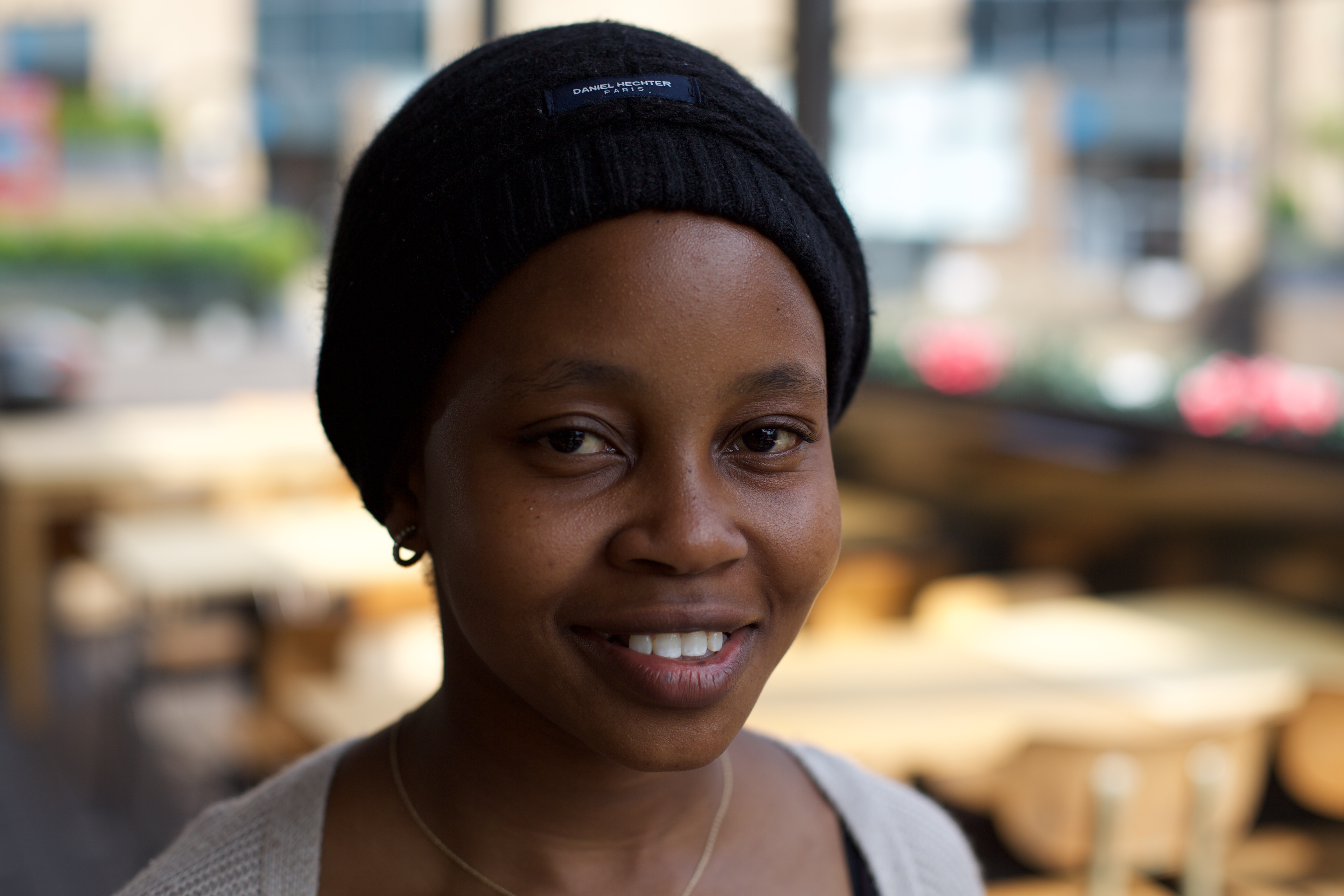
What’s the most interesting conversation you had on the bus this week?
People from outside of the UK often think that everything here is perfect. But through some of the conversations I had on the bus I learnt that just because it’s a first world country doesn’t mean we don’t share some of the same problems. For example, I learnt that we share issues surrounding gender inequality and rights for working class women.
What projects have you been working on in South Africa?
I am currently looking into how we can introduce reusable sanitary pads for girls in South Africa. A lot of younger girls currently use leaves and newspapers to collect their menstrual blood because they cannot afford normal sanitary pads, which is not very hygienic.
Some reusable sanitary products do exist, but many of them are unappealing to younger girls in South Africa, either because they are too expensive or complicated to use. I want to come up with something that is both affordable and comfortable for them.
Back home things are generally either non-profit or profit, so combining the two to me is incredible.
What’s the main thing you have learned on the journey?
I was originally going to develop my idea as an NGO but since coming on Drivers for Change I have decided that I would like to make it a social enterprise. Back home things are generally either non-profit or profit, so combining the two to me is incredible.
Muhammad Hassan, Karachi, Pakistan
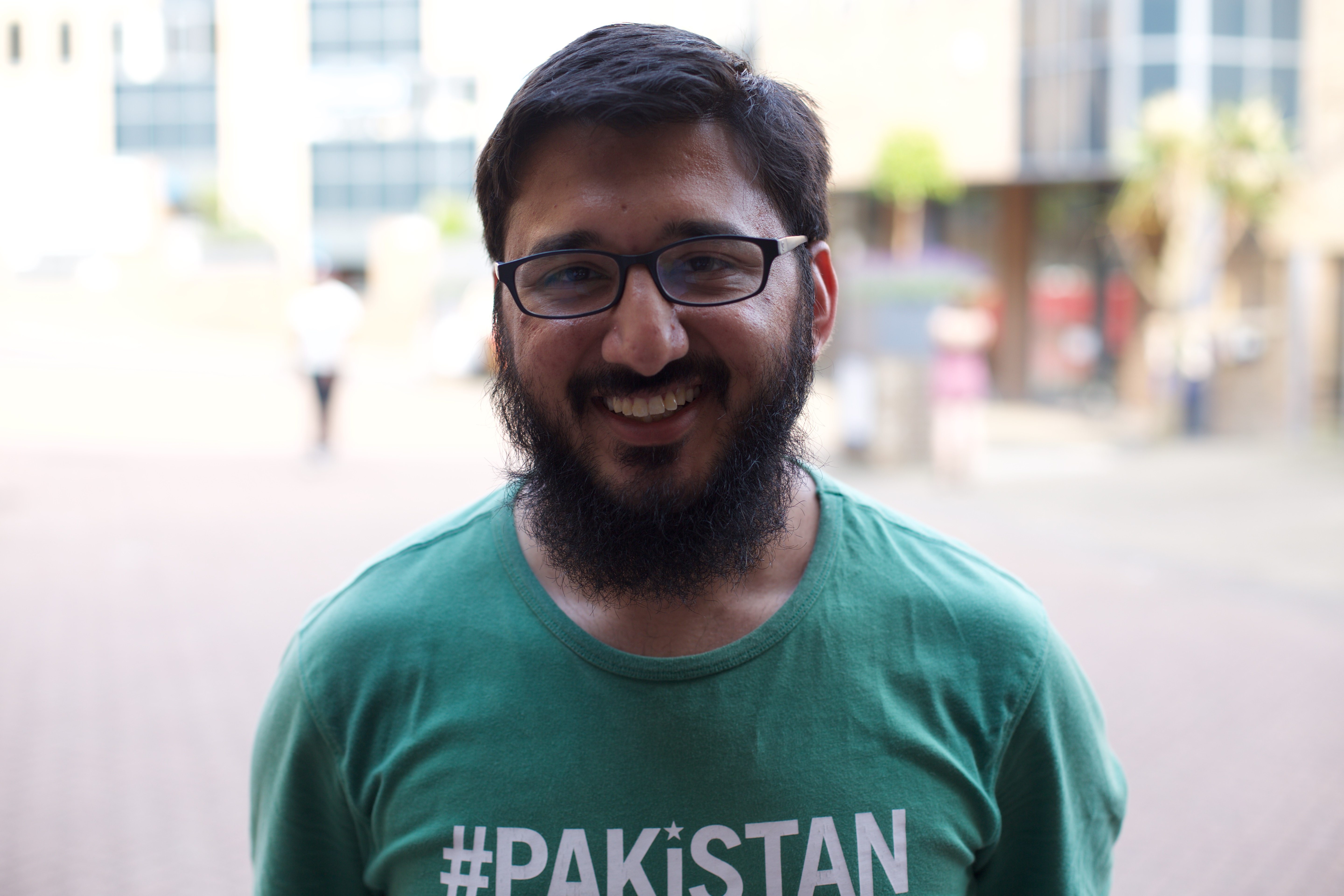
What changes would you like to make in Pakistan?
I want to see greater internship opportunities available. In Pakistan there are so many people deserving of opportunities who are denied them because of nepotism or because they are not from a highly privileged background. I want to bridge that gap.
I’ve spoken to a lot of people who think you either create social good or earn money, but I think you can do both.
What have you learnt on this journey?
My dad is not from a privileged background and he worked his way to the top, and he’s always pushing my brothers and I to do the same.
I believe that, unfortunately, if you don’t have capital, then you don’t have influence, so it was interesting to meet Richard Collier-Keywood. He has climbed his way up through a large firm and now has directed this huge project for social good. That’s really inspiring. I’ve spoken to a lot of people who think you either create social good or earn money, but I think you can do both.
He’s confirmed my view that you have a lot more influence when you have the money, and then you can use that power to do social good. I want to use this opportunity to remind me that, so I can go back and build on a successful career, but do great social work as well.
Fabio Fonseca, Rio, Brazil
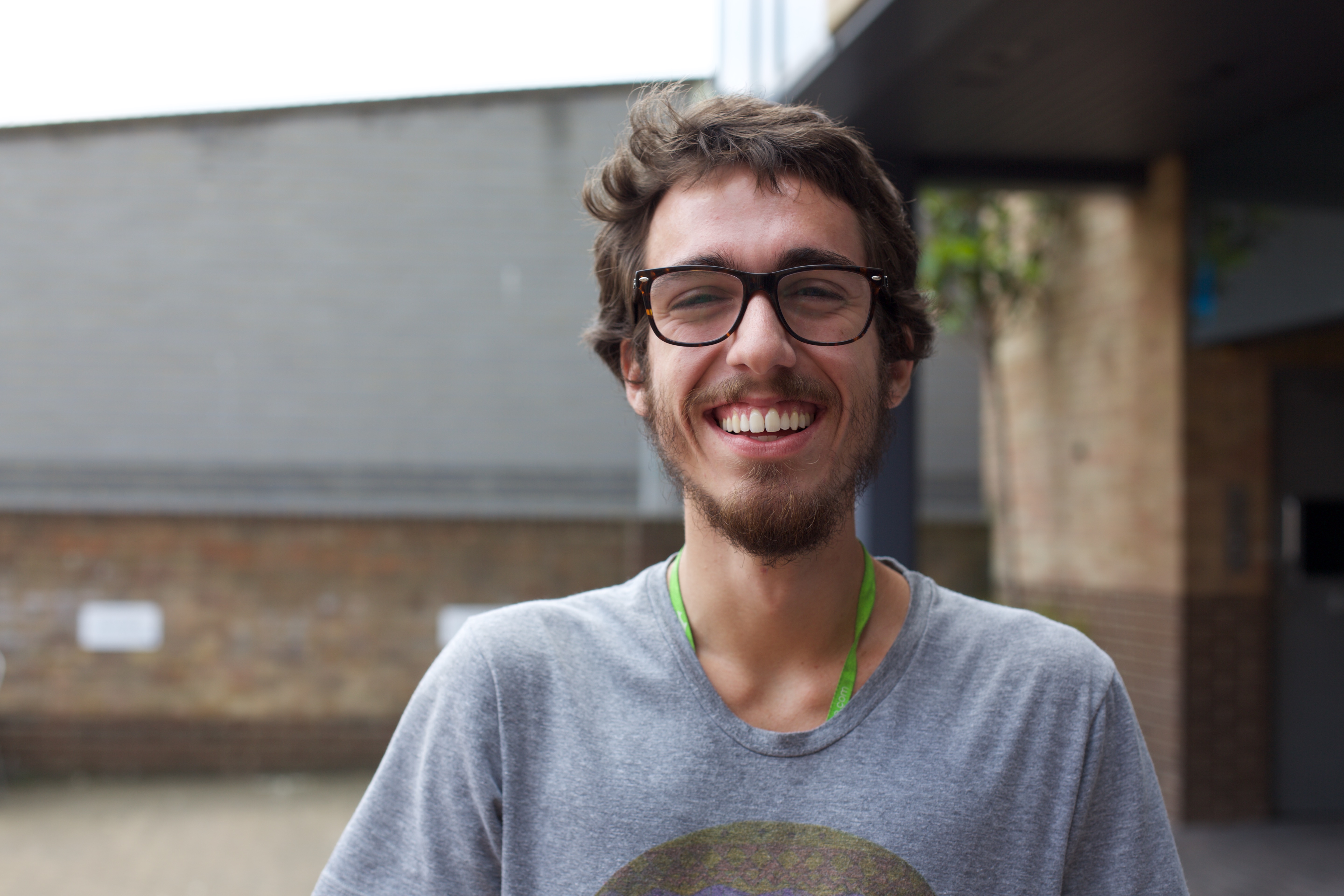
What project are you working on in Brazil?
I’m currently working with a recycling furniture project. I collect furniture that people throw out and upcycle it. Maybe it’s trash for one person, but I try to give it another use and another life.
Last month, I found a little bedside table which was chipped, and transformed it into a new one. I want to give more people the opportunity to work with this kind of furniture.
What’s the most interesting conversation you had on the bus this week?
I met a guy from the UK and we talked about our projects and I was surprised to find he was also working on an upcycling project, I want to keep in touch with him so we can continue helping each other with our ideas in the future. Now I have contacts all over the world who can help me out!
How can creative ideas influence positive social change?
I learnt about how to use our creative minds to create social impact in the lives of others. We learnt tools like the theory of change, and the social canvas to be creative and to make the best of ourselves to give opportunities to other people. I have loved every second of it.
Mo Langmuir, from London, living in Nottingham
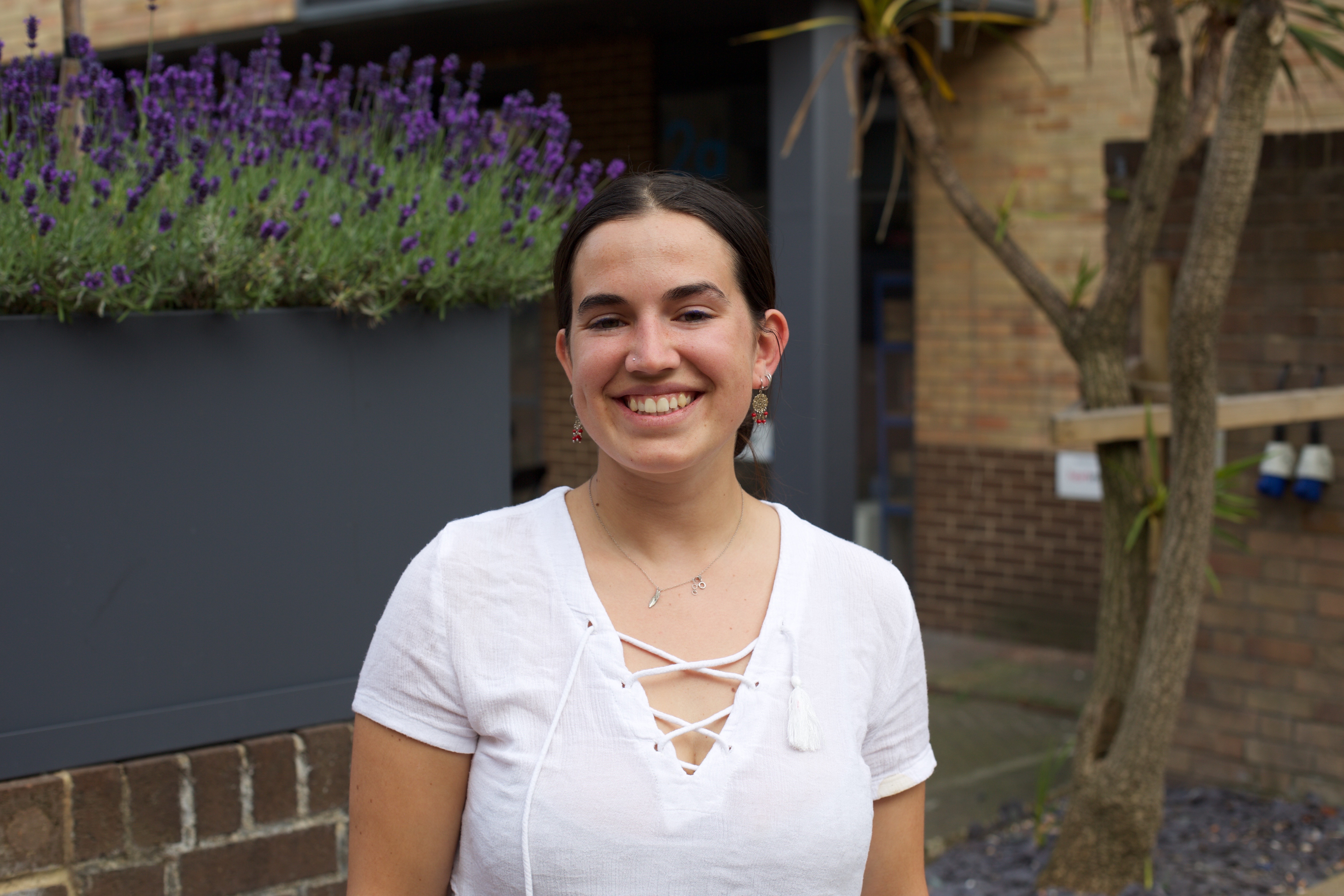
What projects are you currently involved in?
I work with asylum seekers and refugees in Nottingham: I run English classes and I teach them about British culture, like how to apply for jobs and interviews. I’m also very interested in the environment, I studied environmental biology and did a recent project on microplastics and mussels in the UK.
What’s the most important thing you have learnt this week?
I have always been quite a grassroots person and involved in lots of voluntary projects. But this week I have learned a lot about business, funding and legal structures which was really valuable.
Jude Kelly told us that because she came from a creative background, she has always disengaged with money, but that it’s really important to engage in the business side of things if you want to make a sustainable social enterprise and have a project that will last.
I also learnt about the value of collaboration. It is so true that when you’re working with the right people who share the same vision as you it’s always going to make life so much easier. Now I’ve got connections all over the world, which also makes me sad because I don’t know when I’m going to see everyone again!
Francisca Callista, Indonesia, 27
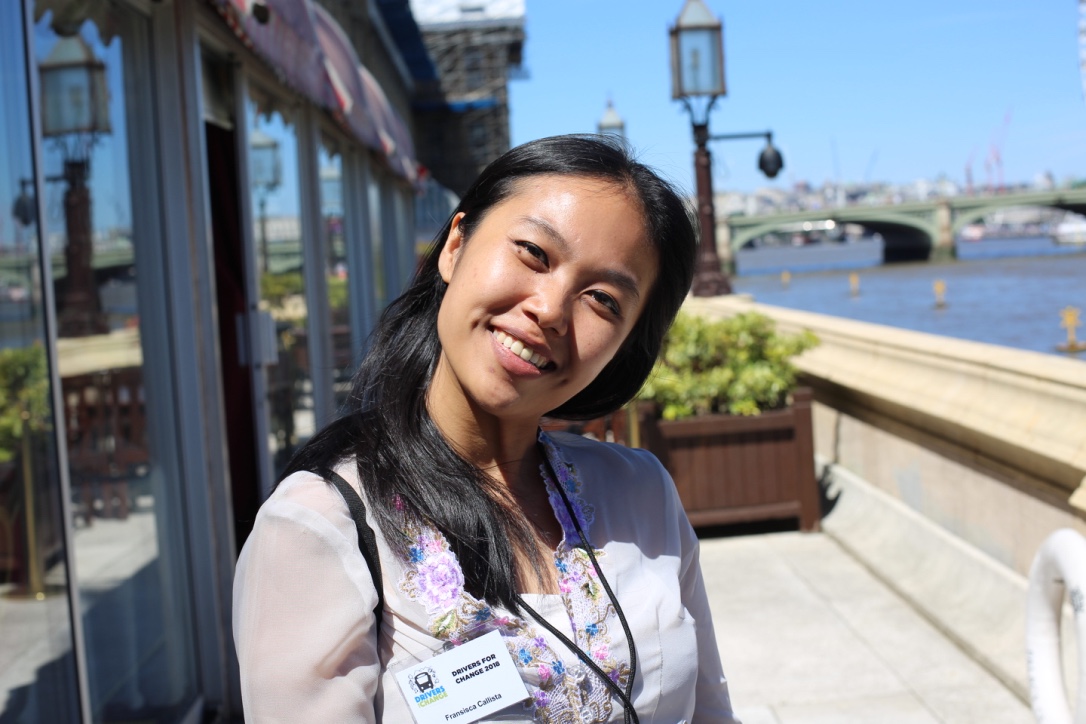
What project are you working on at the moment?
My project aims to promote the value and potential of village life as opposed to moving to the city. I believe that the world should be balanced between city and village life to run successfully.
Whether its to do with sustainability or healthy foods, there’s so much value in village life, but the general consensus among young people is that villages are stuck in the past. My project puts on events for village craftsmen to show off their work, as well as bringing in external resources to help develop village projects. For example I have done a lot of work with bamboo, which grows strong and makes high-value products like bike frames. I want to boost the courage in people from villages that they don’t need to look outside of what they already have.
How has this journey inspired you?
In Indonesia it’s hard to start a social enterprise. This journey has allowed me to see lots of social enterprises that have a good synergy between governments, funders and sponsors, and shown me that there are many different approaches. It’s made me realise that maybe it’s not because the government don’t want to synergise with us, but that we don’t know how to collaborate with them.
I was surprised to find that the UK is such a developed country but that they face similar problems to us, especially in terms of people moving out of rural areas to live in the city
What’s the most interesting conversation you had on the bus this week?
I was surprised to find that the UK is such a developed country but that they face similar problems to us, especially in terms of people moving out of rural areas to live in the city.
Seeing this gave me a new belief in my path, because I realised it’s a global issue that we should be tackling. The conversations I have had on the bus have made me believe in my struggle.
I have also realised the potential our country has as a developing economy, because maybe we can jump to a post-industrial economy based on keeping businesses small and local but open and connected to the rest of the world.


